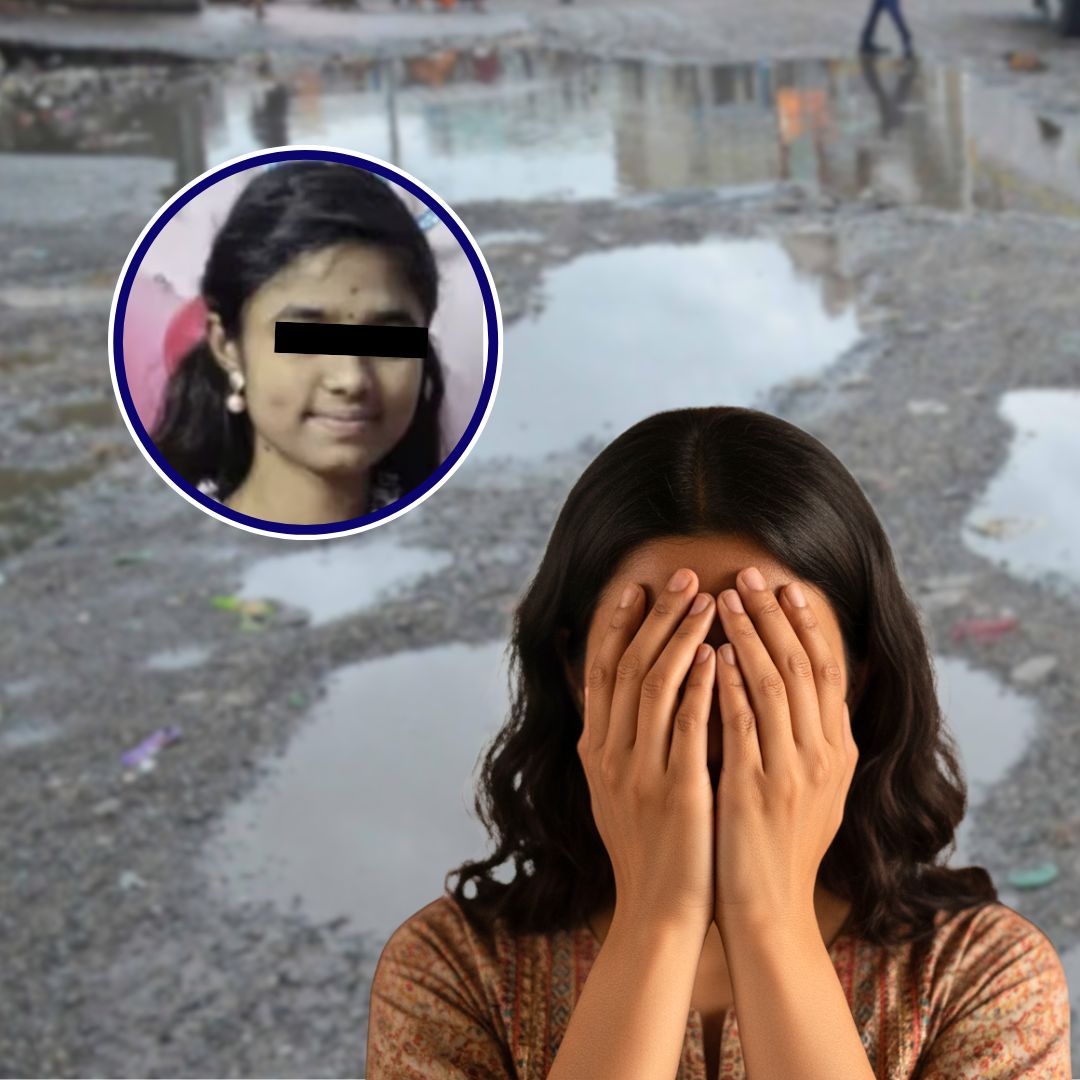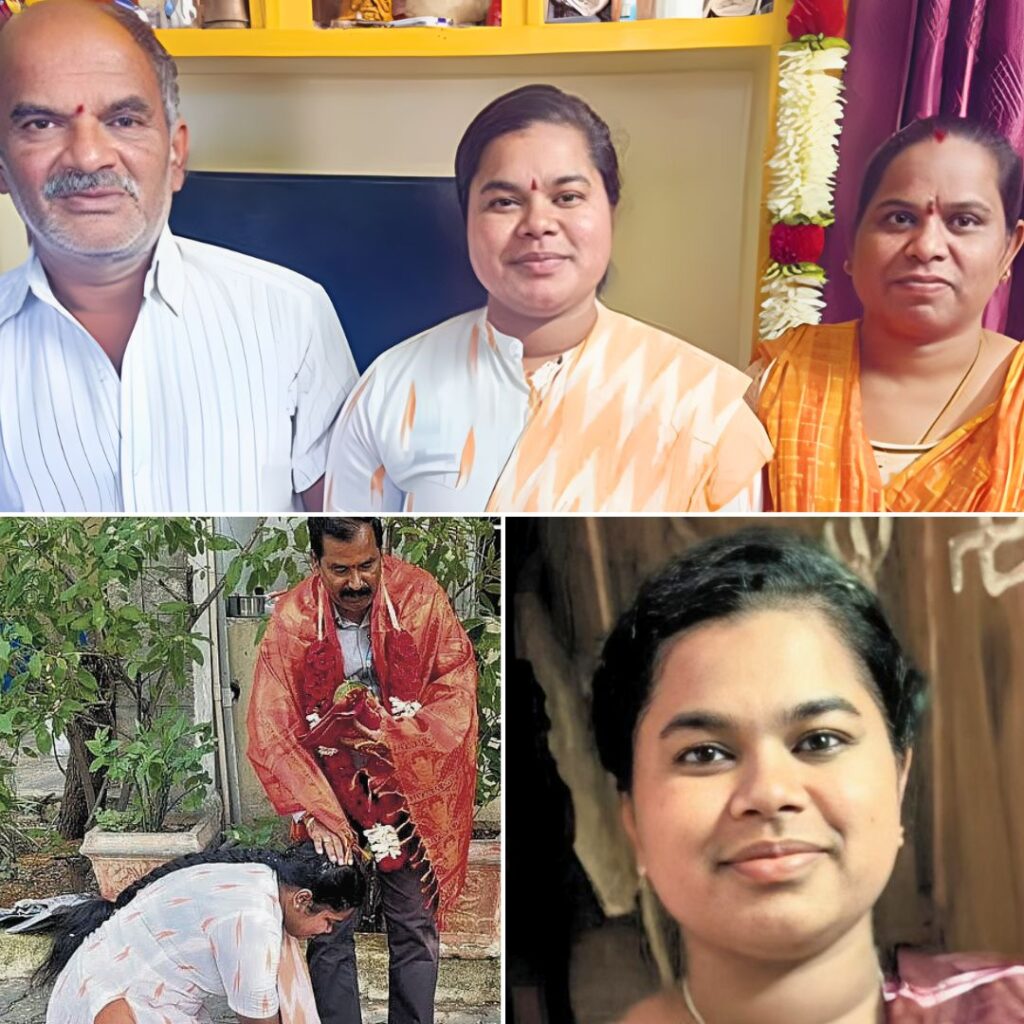On the morning of Monday, 22-year-old Dhanushree, a second-year B.Com student, was fatally injured near Budigere Cross in North Bengaluru’s Avalahalli area. While riding her two-wheeler to college, she abruptly swerved to avoid a pothole, losing control and falling onto the road.
A tipper truck approaching from behind then struck her, crushing her head under its wheels and killing her instantly. The truck driver fled, prompting the Avalahalli Police to register a hit-and-run case. Efforts are underway to locate and apprehend the driver with assistance from KR Puram Traffic Police. Eyewitnesses described the road as riddled with potholes filled with loose gravel and soil, posing a constant threat especially to two-wheeler riders like Dhanushree.
Public Outcry and Road Conditions
The accident has reignited widespread outrage over Bengaluru’s deteriorating roads. Budigere Cross, a vital artery connecting residents to KR Puram, Whitefield, and the airport, is notorious for potholes and hazardous road conditions. Locals hold the authorities accountable for neglect and repeatedly unfilled potholes, which put commuters at risk daily.
The incident comes barely a month after Karnataka’s Chief Minister Siddaramaiah gave officials a 30-day deadline, starting on August 27, to repair all potholes across Bengaluru with quality work.
Despite the government’s promise of strict accountability, including suspension of officials for shoddy repairs, many dangerous patches remain unrepaired, particularly in areas outside city corporation limits, such as Avalahalli, which falls under panchayats.
Political Repercussions and Government Response
The tragic death has sparked fierce political debates. Opposition parties have blamed the Congress-led state government for administrative failures, while ministers deflect responsibility by blaming previous governments. BJP leaders like MP Tejasvi Surya and MLA K Gopalaiah have criticised the government for managing pothole repairs as a “scam” that wastes public funds and fails to ensure road safety.
Deputy Chief Minister D.K. Shivakumar, overseeing Bengaluru development, has taken a defensive stance, attributing the pothole crisis to prior regimes but has also assured action. Activists argue that regardless of political blame games, citizens continue to pay the price with their lives on poorly maintained roads.
In addition to recognising the tragic pothole accident, Bengaluru has also seen proactive initiatives to enhance road safety and infrastructure. The Karnataka government launched an ambitious 90-day action plan under the “Mission Free Traffic-2026,” which focuses on repairing and resurfacing 1,600 km of city roads, filling potholes, and improving key commuter routes.
This plan integrates public transit with innovations like a single city-wide mobility card, aiming to reduce congestion and improve commuter safety. Alongside government efforts, citizen-driven movements such as the “Safe-A-Thon” promote awareness of responsible road use through events like walkathons, marathons, and cycling rallies. Corporates like Toyota Kirloskar Motor also contribute through educational programmes engaging students as road safety ambassadors.
These collective efforts seek to build safer, more accountable urban mobility ecosystems, but their impact depends on continued commitment and collaborative citizen-government participation to prevent further loss of life on Bengaluru’s roads.
The Logical Indian’s Perspective
Dhanushree’s tragic death is a stark reminder of the human cost of poor civic infrastructure and lack of accountability. It demands more than official deadlines and political finger-pointing; it calls for a transformative approach prioritising the safety and dignity of all citizens.
Safe roads are a fundamental necessity, not a negotiable luxury, and every commuter deserves infrastructure that protects rather than endangers. The Logical Indian urges governments at all levels to honour lives lost through decisive, sustained action rather than periodic outrage.












